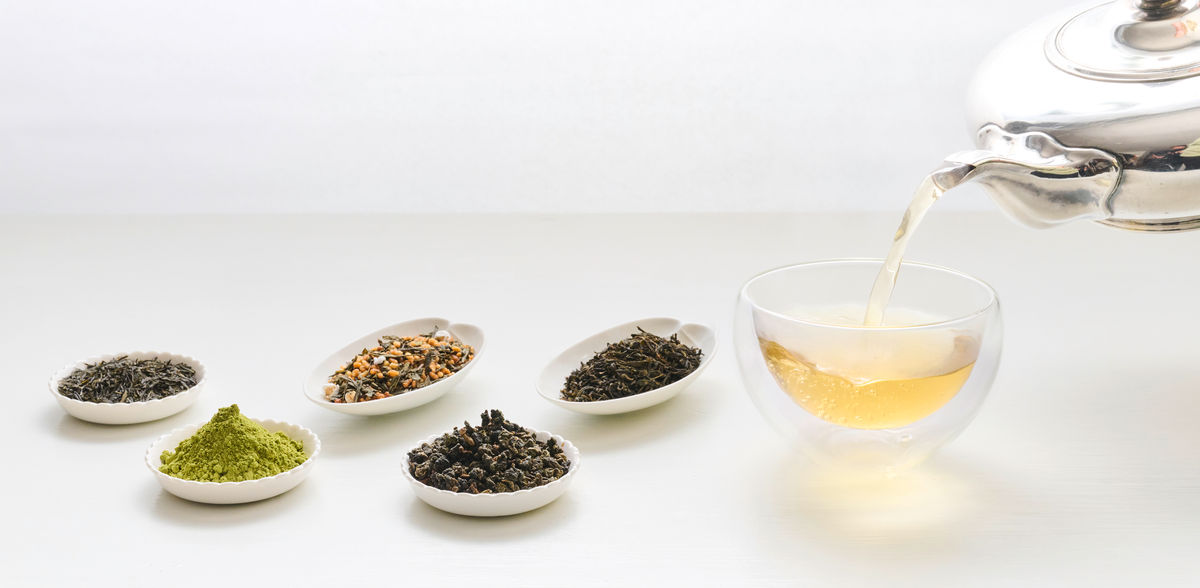Global and umami
The secret of green tea's success
When people meet in Japan for a classic tea ceremony with umami moments, take a short break in one of Morocco's bustling bazaars or start their working day early in the morning in China, they are united by one thing - their beloved green tea. But why does this particular type of tea form an invisible bond around the world? And why do so many tea fans here swear by this tea in particular, which is considered healthy and is an important part of many people's mindful lifestyle?
Black or green - that makes all the difference
Although green and black teas come from the same tea bush(Camellia sinensis), the production process is different. While the tea leaves for black tea undergo a fermentation process caused by enzymes after harvesting, this is prevented in the case of green tea. The fresh leaves are either steamed or roasted in pans. Outside of China, the strong, smoky gunpowder is the most widespread variety in the world. In North Africa, gunpowder is often sweetened and served to guests with mint. The green tea quality Sencha, with its rather soft, aromatic delicacy, is in second place on the popularity scale and is offered here both as loose tea and in tea bags.
A day without green tea? Unthinkable!
In China, by far the largest green tea-producing country in the world, and in Japan, green tea is omnipresent and a natural part of people's everyday lives. Legend has it that Buddhist monks once learned to appreciate green tea for its caffeine kick as a support during their strenuous meditations. As an integral part of the culture of enjoyment, green tea is also considered to be a factor to which so many people in Japan owe their particularly long life. Due to its great popularity, green tea has also been produced in classic "black tea growing countries" such as Kenya, Malawi and Mozambique for some years now.
Green tea specialties to discover with pleasure
In this country, tea connoisseurs can satisfy their longing for serenity, mindfulness and Asian indulgence culture in many different ways. Perhaps with a cup of lung ching, also known as "dragon fountain tea". This green tea specialty from China provides a pleasantly varied taste experience with its fine, fruity, fresh, grassy and very gentle roasted notes. Or with a cup of matcha from the land of the rising sun, which tastes "umami" (Japanese for delicious) and is emblematic of Japan's long tea culture. Green tea specialties can be found in a large selection in specialist tea stores or in the online stores of many suppliers - also in organic quality, of course. Our recipe tip shows how green tea - not only prepared as a classic drink - can enrich your daily diet, starting your morning off on a serene and powerful note.
Note: This article has been translated using a computer system without human intervention. LUMITOS offers these automatic translations to present a wider range of current news. Since this article has been translated with automatic translation, it is possible that it contains errors in vocabulary, syntax or grammar. The original article in German can be found here.
Most read news
Organizations
Other news from the department business & finance

Get the food & beverage industry in your inbox
By submitting this form you agree that LUMITOS AG will send you the newsletter(s) selected above by email. Your data will not be passed on to third parties. Your data will be stored and processed in accordance with our data protection regulations. LUMITOS may contact you by email for the purpose of advertising or market and opinion surveys. You can revoke your consent at any time without giving reasons to LUMITOS AG, Ernst-Augustin-Str. 2, 12489 Berlin, Germany or by e-mail at revoke@lumitos.com with effect for the future. In addition, each email contains a link to unsubscribe from the corresponding newsletter.
Most read news
More news from our other portals
Last viewed contents

First 3D-bioprinted structured Wagyu beef-like meat unveiled - An environmentally friendly and sustainable method for producing cultured meat alternatives

Bread times differently - WISAG Catering launches a new campaign with "Mahlzeit - Brotzeit"
































































